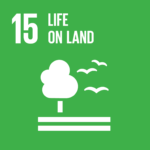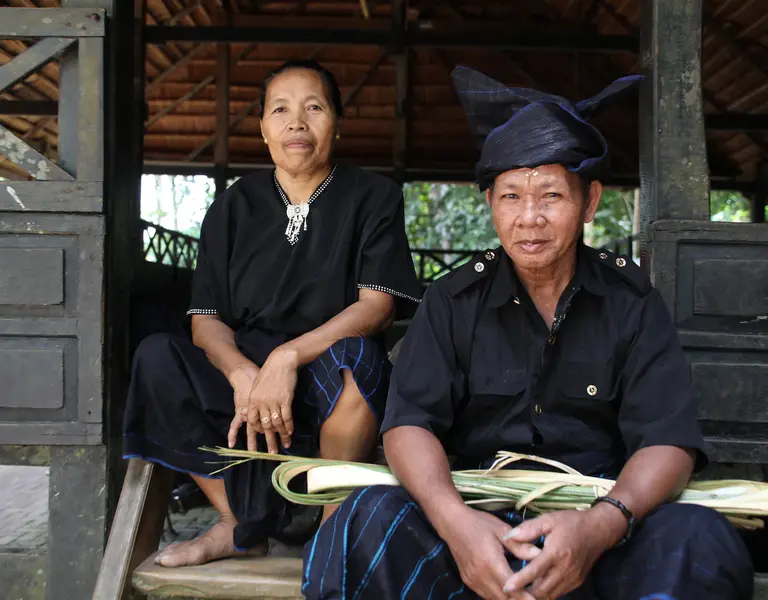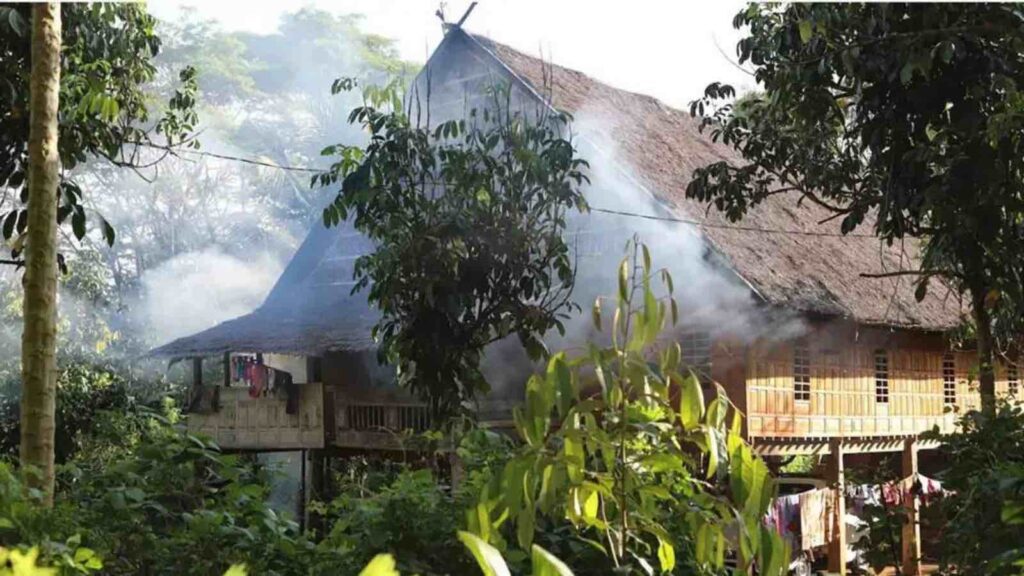Deep within the verdant forests of South Sulawesi lies a hidden gem of environmental stewardship: the Kajang Tribe. In the words of one Kajang elder, “If we take care of the forest, the forest will take care of us.”
At the heart of the Kajang tribe’s conservation efforts is their guiding philosophy, known as Tallasa Kamase-Mase. This principle promotes a life of simplicity and restraint, free from material excess, with a focus on serving a higher spiritual purpose. The phrase “tallasa kamase-mase” literally translates to “living simply,” but its significance goes much deeper.
RELEVANT SUSTAINABLE GOALS



A Philosophy Rooted in Simplicity: The Tallasa Kamase-Mase Tradition
At the heart of the Kajang tribe’s conservation efforts is their guiding philosophy, known as Tallasa Kamase-Mase. This principle promotes a life of simplicity and restraint, free from material excess, with a focus on serving a higher spiritual purpose. The phrase “tallasa kamase-mase” literally translates to “living simply,” but its significance goes much deeper.
In the context of forest conservation, this philosophy has profound implications. By shunning excess and prioritizing balance, the Kajang people avoid exploiting the forest’s resources beyond their immediate needs. This measured approach helps maintain the delicate ecosystem around them, ensuring that the forests they depend on can thrive for future generations.
One of the tribe’s core teachings reinforces this balance: “Preserve the world and all its contents, including the sky, humans, and the forest.” It is a reminder that humans are just one part of a vast interconnected ecosystem, and any disruption to that balance—whether through greed, waste, or overconsumption—can have far-reaching consequences. For the Kajang, respecting this balance is a sacred duty.
Sustainable Living: Homes in Harmony with Nature
The Kajang’s reverence for nature is not only reflected in their forest management practices but also in the way they construct their homes. Every house in the village is built according to strict guidelines that emphasize uniformity in size, materials, and orientation. This uniformity serves an important purpose: it discourages envy and competition within the community, which could lead to unnecessary exploitation of natural resources.
By resisting the temptation to build larger or more extravagant homes, the Kajang people ensure that their forest remains intact. This restraint is a key factor in their ability to protect their environment. In a world where consumerism often drives environmental degradation, the Kajang’s simple lifestyle stands as a powerful counterexample of how sustainable living can preserve natural resources.

Tree felling in the Kajang community is not a casual decision. It is regulated by a set of strict rules, grounded in a deep respect for the forest. Trees are only felled for essential purposes, such as building homes or crafting tools, and even then, the tribe follows a detailed process to ensure that their actions do not harm the broader ecosystem.
The Healing Power of the Forest: The Wisdom of Doti
In addition to their forest conservation efforts, the Kajang people possess a rich tradition of natural medicine known as Doti. This knowledge, passed down through generations, involves the use of medicinal plants to heal ailments and promote well-being. The practice of Doti is closely tied to the Kajang’s deep connection with the forest, as they rely on the ecosystem’s biodiversity to maintain their health.
The Kajang approach to Doti is not simply about extracting resources from the forest; it is about working in harmony with nature’s cycles. By using plants in a sustainable way and ensuring that their actions do not disrupt the balance of the forest, they contribute to the overall health of the ecosystem.
The Kajang tribe’s success in preserving their forest has not gone unnoticed. Their efforts have garnered international acclaim, with environmental organizations and media outlets like The Washington Post highlighting their achievements. The tribe’s approach to conservation offers valuable lessons for the world: that it is possible to live in harmony with nature while maintaining a thriving community.
The world is beginning to understand what the Kajang people have known for generations: that true sustainability requires more than just conservation policies or regulations. It requires a fundamental shift in how we view our relationship with the natural world. The Kajang’s way of life teaches us that the answers may lie in returning to simplicity, humility, and a deep respect for the planet.
As the international community looks to the future of conservation, the Kajang tribe serves as a powerful reminder that indigenous wisdom and local knowledge are critical to protecting our forests and ecosystems. Their journey is far from over, and their story continues to inspire.
In the words of one Kajang elder, “If we take care of the forest, the forest will take care of us.”
Sulawesi’s forests have their guardians—perhaps it’s time the world listened.
All images courtesy of Peter Yeung/The Washington Post. Indonesia, 2023.
You may also be interested in :
The Rise of Adan Krayan Rice : A Culinary Gem From Kalimantan




